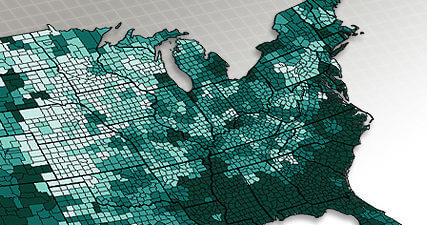Economic mobility measures the relationship between a parent and child’s economic outcomes, usually in terms of income. Too often, an individual’s economic outcome in the United States is determined by parental resources, race, and privilege, rather than individual effort and talent. In addition, rising economic inequality over the past several decades means that the consequences of stalled or falling economic mobility have gotten worse. Equitable Growth seeks to understand how today’s inequalities could be foreclosing equality of opportunity for future generations.
Featured work
In Conversation with Omari Swinton
September 24, 2025
September 24, 2025
Factsheet: U.S. economic mobility and policies to increase upward mobility
June 17, 2025
June 17, 2025
Race and the lack of intergenerational economic mobility in the United States
February 18, 2020
February 18, 2020
Factsheet: What the research says about the economic impacts of reproductive care
June 27, 2022
June 27, 2022
Explore Content in Economic Mobility421
How the student debt crisis affects African Americans and Latinos
February 17, 2016
February 17, 2016
What do trends in economic inequality imply for innovation and entrepreneurship?
February 16, 2016
February 16, 2016
Today’s big U.S. economic trade-off isn’t equality or efficiency
May 5, 2015
May 5, 2015
The economic and fiscal consequences of improving U.S. educational outcomes
February 2, 2015
February 2, 2015
Patterns of economic mobility in the United States
June 10, 2014
June 10, 2014
Marriage promotion isn’t the only solution to America’s mobility problem
June 4, 2014
June 4, 2014
A regional look at single moms and upward mobility
June 4, 2014
June 4, 2014
A response to another attack on the Great Gatsby curve—and can we call it the “line to serfdom” instead?
March 11, 2014
March 11, 2014
When Measuring Mobility, Location Still Matters
February 26, 2014
February 26, 2014
Explore the Equitable Growth network of experts around the country and get answers to today's most pressing questions!











